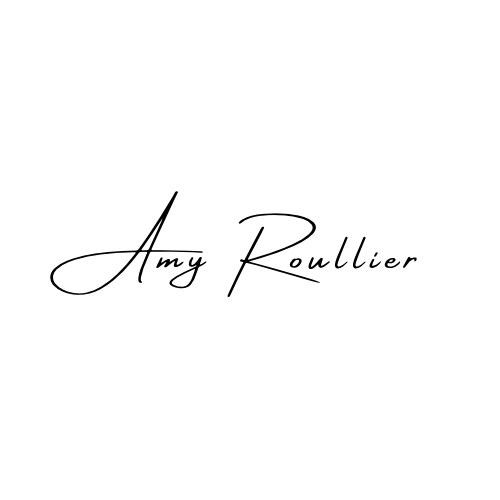As a kid, I used to pack out my tiny padlocked diary with all my feelings. I’d love to take a peek back into those thoughts as a child, and what I’d written so eagerly on a daily basis.
Most likely it would be chocked full of the boys I fancied, dramas with friends, what I’d been up to at the weekend, and how my parents didn’t understand me at all. Although I can’t remember anything specifically about what I used to write, I remember that I enjoyed it. That it felt like a safe-space for me to air everything going on in my head. A relief to offload those thoughts onto paper. Release them from my mind, consider them anew, and figure a few things out.
I’m not entirely sure when I stopped my teenage diary entries, I just know that it was many years before I ever considered something like a diary or journal for my thoughts, again. In 2019, I began a journal. Less self-reflection at the time, more ranty offloading’s about how crap dating is, how rubbish it is to be single, my pretty shitty divorce, and a lot of woe is me style lined pages.
I had not anticipated how valuable journaling would become to me.
Or how good journaling could be for my wellbeing. How this place for me to write my deepest thoughts and feelings, to explore my emotions and figure out a bit better, who I am. Would improve my mental health, increase my self-awareness, help me to move on from past trauma and make sense of experiences.
Journaling became my form of self-therapy, a meaningful way to process. And I’ll be forever grateful that I chose to start doing it once again.
Journaling has long been considered a useful tool in improving mental health, and raising self-awareness
Don’t just take my word for it though. A Cambridge University has listed the benefits of journaling including ‘short term decrease in distress, negative mood and physical symptoms’ and longer term benefits including greater psychological wellbeing, plus a whole load of improved physical outcomes.
If you feel inspired to give journaling a go, here’s my starting guide:
- Choose your method: When I first began journaling I started out with old school pen and paper. There’s something about it that’s calming. A slower method, yet one which gives you time and space to form your thoughts as you go along. After a while, I moved over to a computer. My thoughts flowed quicker as a I found my rhythm with journaling, and I felt more creative as a result.
- Make the time: Generally, people struggle with putting time aside for their own development. It feels a bit like a waste of time, when in fact discovering more about how you really feel, what’s important to you, checking in with yourself, these are deeply important to your sense of happiness. Make the time. If you don’t start it, you’ll never discover the benefits. Whether it’s daily, weekly, or on a monthly basis. Make a commitment to journaling, and set yourself a realistic amount of time to set aside on a regular basis.
- Your diary, your rules: Not sure what to write? That’s totally okay. This is your diary, there are no rules. Writing takes practise. Getting in touch with you takes time. If it were easy, we’d all be journaling on the regular. You can write from any perspective, such as for yourself, or for other people. You can experiment with different writing forms and tools. Write imaginary stories, or your truest worries, hopes and dreams. Write a letter to yourself, a poem, draw a picture. This is your journal, how you choose to create the content is entirely up to you.
- Writing won’t solve all your problems: Journaling is a tool for learning more about yourself, but it won’t fix all your problems. Although it will give you opportunity to express how you feel, to then be able to reflect on your thoughts. This in itself is incredibly effective for building self-awareness, and the ability to reflect on how these things are making you feel, what you are most anxious about, what you are grateful for, things you fear, and things you enjoy. In creatively writing your thoughts, you’re more able to come up with creative ways to reflect and learn from them, and process what you are feeling.
- Keep it safe: Your journal has to be a safe space for your thoughts, so do consider how you are going to store this to keep it from unwanted eyes. You’ll only feel truly free to write as you please, when you are confident that no-one else is ever going to stumble across your pages.
Start small, the rest will flow naturally
If you need some inspiration, or a journal prompt to set you off, this is how I began.
At first by writing about things that were frustrating me in my present situation. I was sad, angry and pissed off, and as an emotionally expressive person, that was the easiest place to start for me. Fiery, frustrated emotions poured out way easier on paper than if I’d started by trying to delve into who and why I am. Which at the time would have left me with writers block for days.
It soon moved on to sharing my innermost thoughts around past traumatic experiences
Sharing thoughts that I’d never shared with anyone before. Relationships, dating, marriage, divorce. Pouring all my heartache onto the pages. And from my journaling, I began to self-analyse decisions I’d made. I became more self-aware, and in doing so, more compassionate towards myself and my past actions. I began to heal and move on, through these pieces. It was an emotional release of conscious, and sometimes completely unconscious, conflicts that were hidden deep within in my head. Venting them, helped me to reduce the negative thoughts and feelings attached to those situations.
I wrote pieces on my mental health. When the covid pandemic took hold of the world, I think its fair to say that everyone’s mental health took a beating. Mine, in all honesty, has never been at 100% quite right. However I was more confident in sharing this side of me, with me. Admitting that I have struggled. Reminding myself that it was okay to not be okay. Acknowledging that I have experienced depression, low moods and suicidal thoughts. It was a cathartic tool in growing more accepting of myself. For acknowledging that I sometimes struggle to mentally be okay and that is perfectly normal.
Journaling also became a way for me to relive happy events, release stored up positive emotions, explore myself and my life more, and remind myself the things I was grateful for
My achievements. My hope and dreams. Things that made me happy. My strengths. Writing helped me to change my internal speech from something that had been quite negative for a number of years, to something much more positive. By offloading the negative, being able to read it on paper, understand it more, and also recognise all the good within me, I showed myself more compassion and kindness. That’s been something I’m hugely grateful for. Learning to like imperfectly perfect me and alter my inner speech to something much more caring and positive.
Journaling has long been proven to reduce stress, anxiety and depression. Improve emotional health, and help people to accept rather than judge their mental experiences. Essentially it’s a form of self-counselling. My own journal has become one of creative focus on my experiences, and gratitude journaling to shift my focus onto the positive aspects of my life. Reflecting on my situations and thoughts. Healing, by being able to write sometimes objectively, and oftentimes to see the words on paper so that I can reflect.
For me, writing about particular topics is what really set my creative writing skills in motion
Which then, after a couple of years storing a number of entries only for my eyes, I set about creating this website. I had not expected that beginning that journal, would become this blog. Nor that I would become so passionate about challenging the negative narrative around being single, encouraging conversations on mental health and wellbeing to help make the invisible, visible, and in doing so, try to reduce the shame and stigma that exists for all of these things. Or that you might be here reading this blog. Yet here we are. Me, hoping to inspire you, to try out journaling to better your own mental health.
Just because I chose to air these thoughts publicly, doesn’t mean that your journal must go in the same direction. My journaling, although public, is predominantly still for me. I write for the person I will be, and the person I was, as much as for all the other people reading them. I hope that by arriving on this blog, you feel inspired to give journaling a go. Because journaling really is good for wellbeing.

Amy Roullier
Amy Roullier is a British writer and author of Silent Reflections of a Fragile Heart. For her, writing began as personal therapy and has evolved into a way to connect with others. Based in Lincolnshire, Amy is an occasional vegetarian and a dedicated lover of carbs—her true soulmate. She’s currently navigating a mid-life crisis through running, and mornings are simply impossible without coffee.


